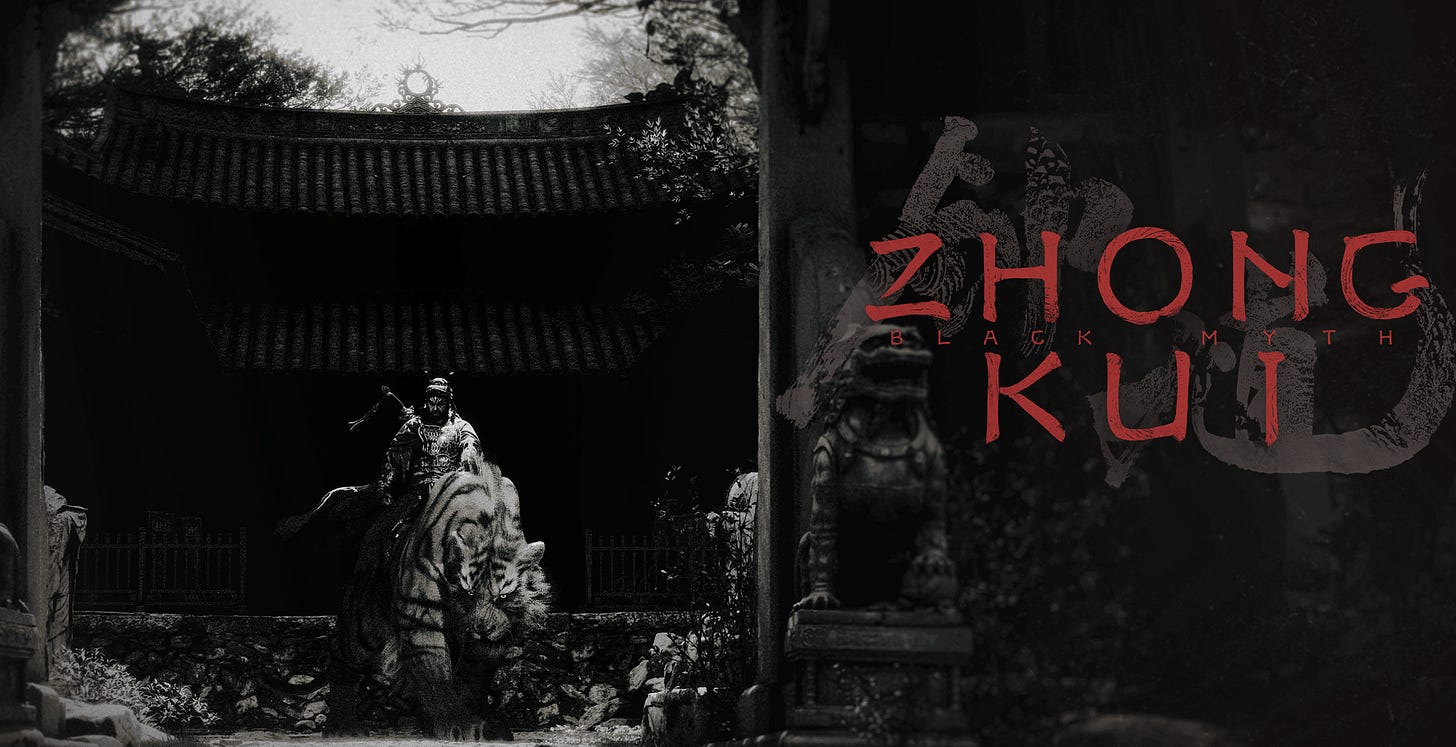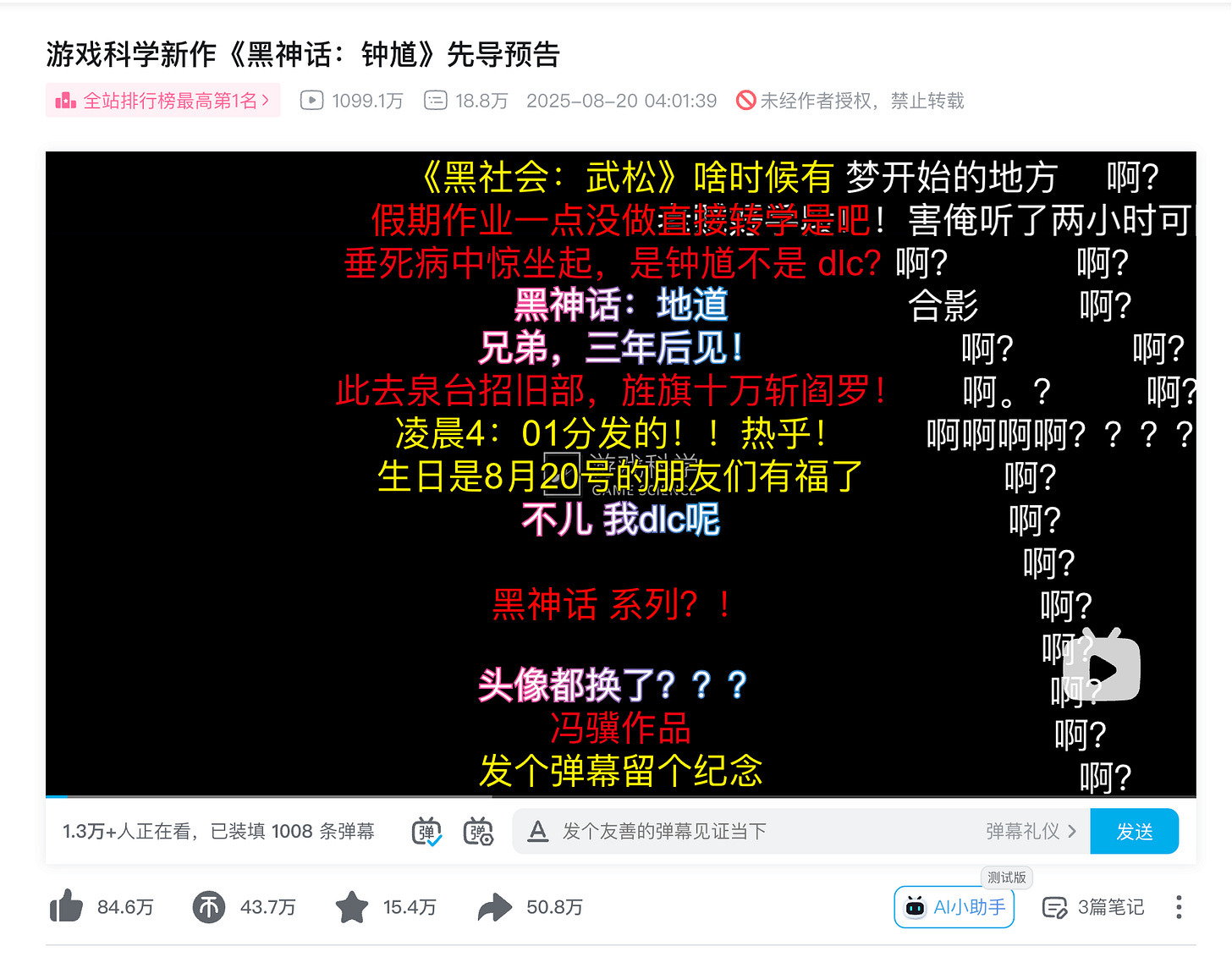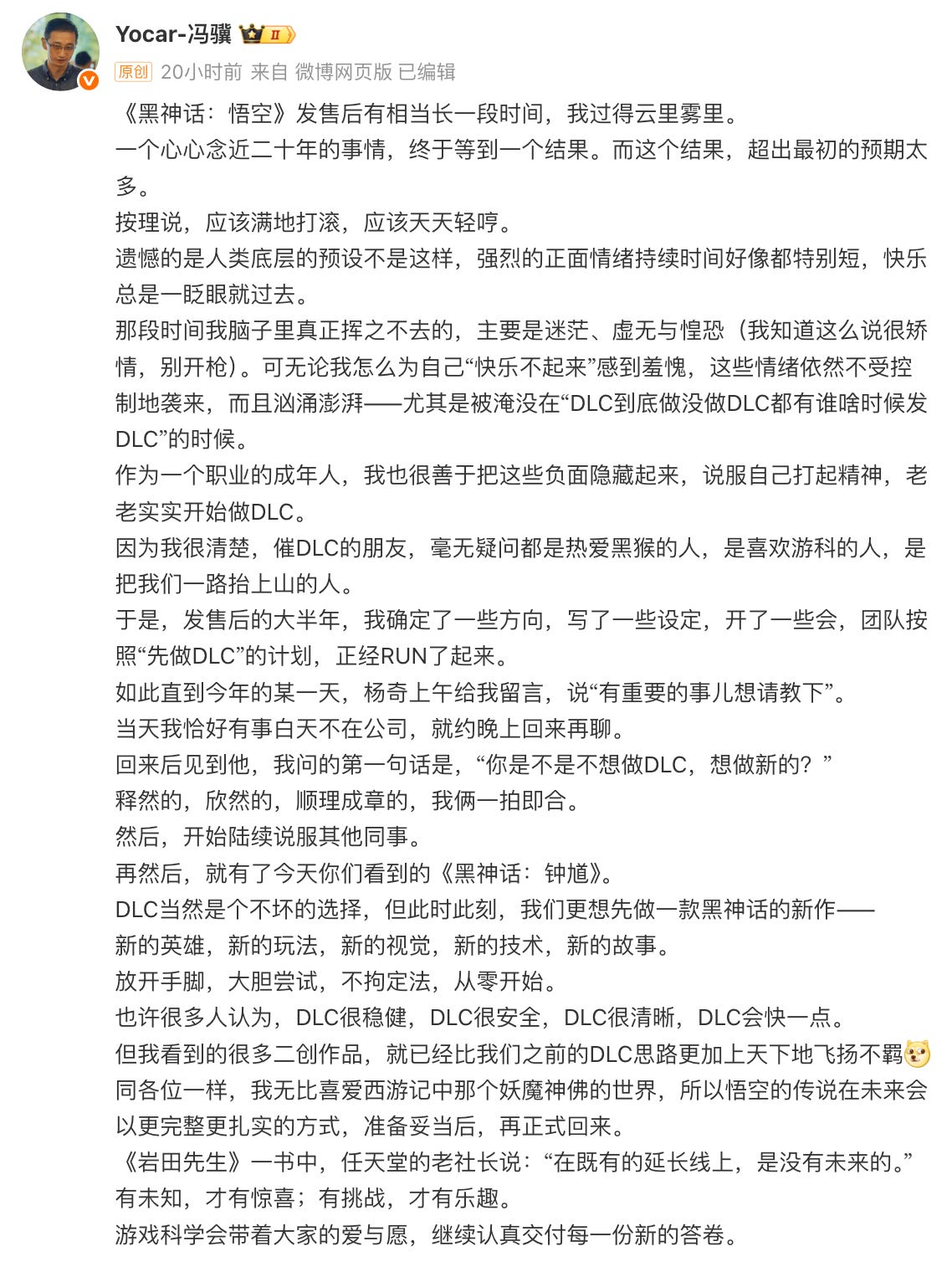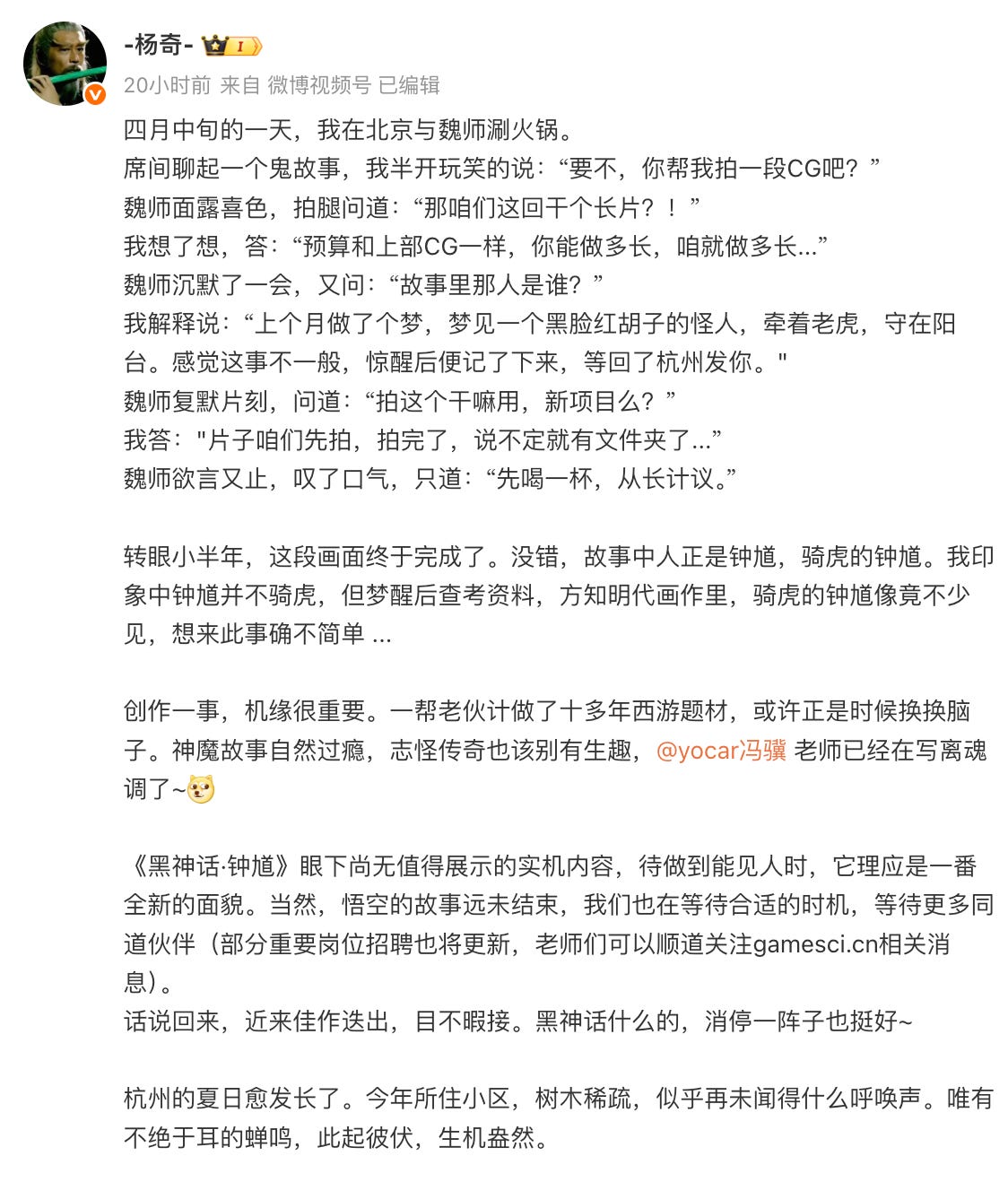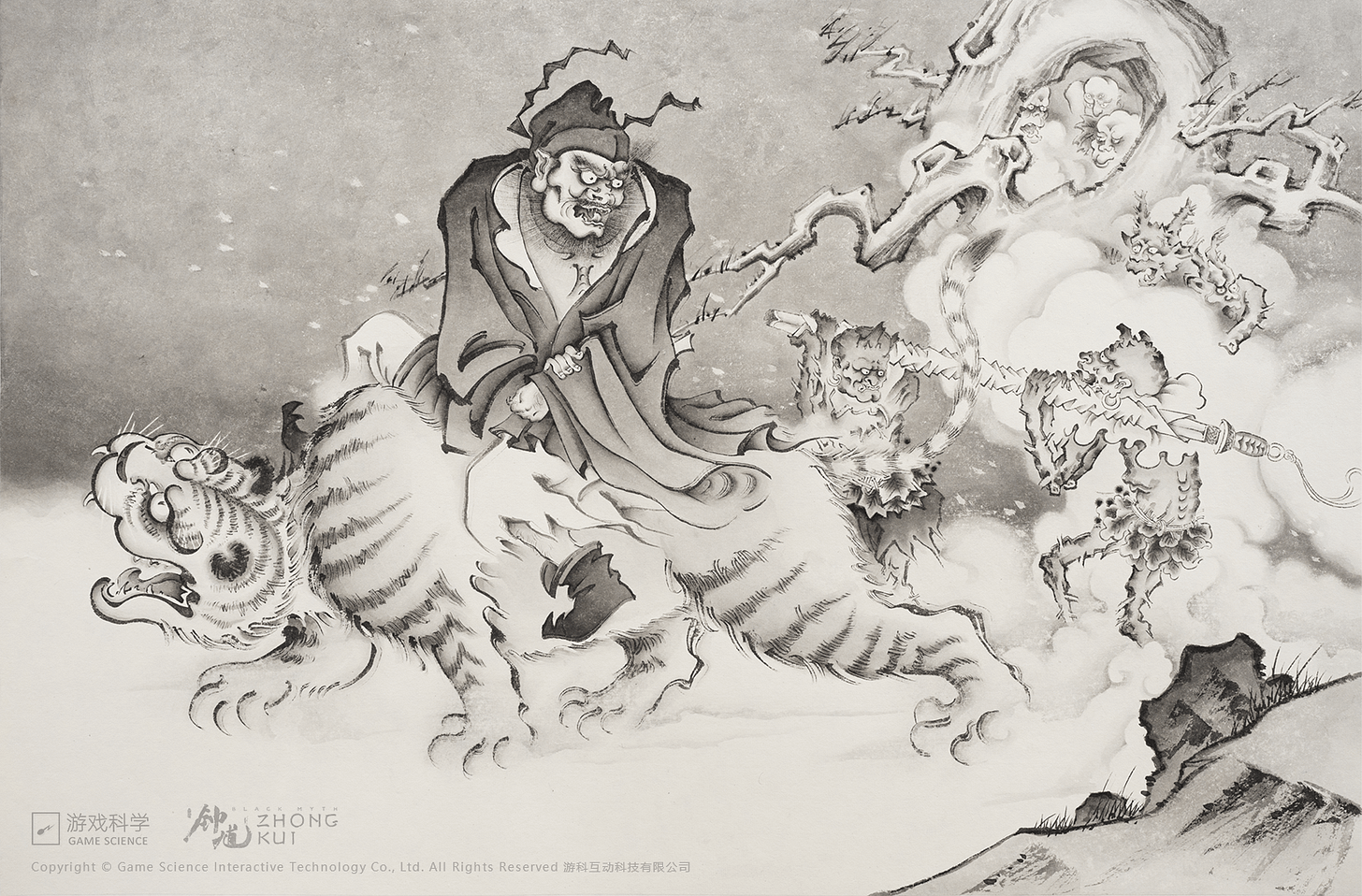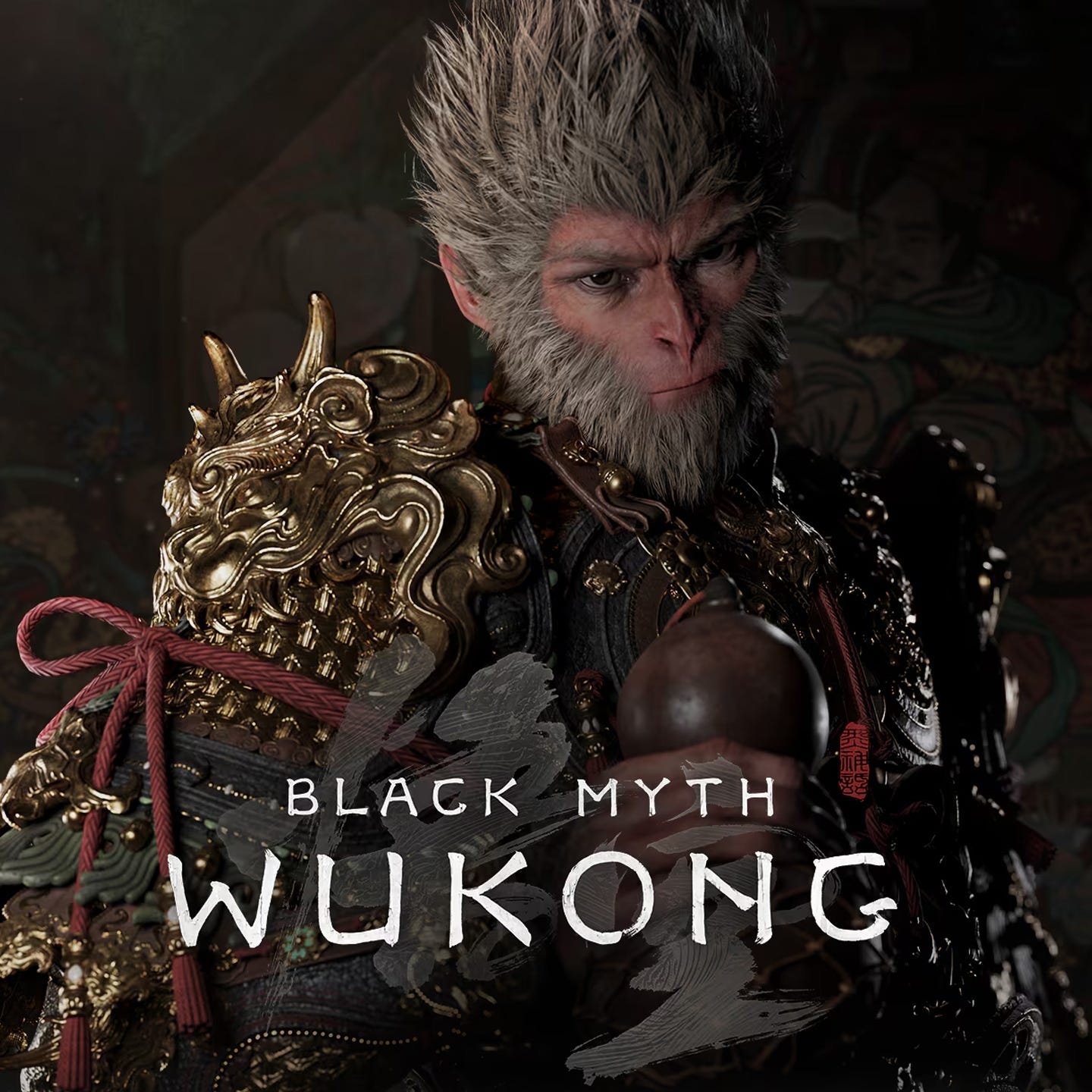Black Myth Universe Expands: Game Science Unveils Black Myth : Zhong Kui
From Wukong to Zhong Kui: A New Chapter in Chinese Myth Gaming
Introduction
On the evening of 20 August 2025, one of the world’s biggest gaming shows ended with a rare sight: a Chinese game closing the curtain. At the end of Gamescom’s Opening Night Live showcase in Cologne, Germany, Chinese studio Game Science revealed the first teaser for its next title, Black Myth : Zhong Kui, a new action‑role‑playing entry set in the burgeoning Black Myth universe. The announcement came almost exactly a year after the studio’s breakout hit Black Myth : Wukong launched on 20 August 2024; that game’s stunning visuals and melee combat powered by Unreal Engine 5 sold millions of copies in its first month and turned a small independent studio from Hangzhou into one of China’s most celebrated game developers.
The trailer’s arrival sparked immediate interest at home and abroad. More than two million Chinese viewers stayed up all night on the video platform Bilibili to watch Gamescom’s live broadcast and witness the Black Myth : Zhong Kui reveal, and the teaser’s play count surpassed seven million within eight hours of release; by the evening of 20 August it had exceeded ten million views and topped Bilibili’s overall charts. Internationally, gaming sites from Polygon to Kotaku scrambled to unpack the minute‑long cinematic; some called it the first time a Chinese game had been given Gamescom’s show‑closing “main event” slot.
https://www.bilibili.com/video/BV1sHePzWEbG
This article summarises the domestic and international coverage of the announcement, explores the cultural roots of the demon‑quelling hero Zhong Kui, explains Game Science’s reasons for pursuing a new myth rather than a direct Wukong sequel and assesses what the project means for China’s burgeoning AAA industry.
A glimpse into the demon world: what the teaser showed
The two‑minute CG teaser opens on a moonlit mountain temple. Two men sheltering in a dilapidated hall nervously discuss the demonic creatures stalking the world. As they whisper, a shadowy figure appears outside; he wears an iron crown with curved horns, a bushy beard and bulging eyes, and he rides a tiger. This is Zhong Kui, known in Chinese folklore as a ghost‑catching deity. He draws his blade, and the scene cuts to glimpses of grotesque demons, flickering lanterns and supernatural storms before ending on the hero’s grim face.
Gaming site GamesHub noted that the teaser’s tone departs sharply from Wukong’s vibrant, martial‑arts energy. The new game evokes supernatural energy, brutal combat and folklore‑inspired demons, with a darker atmosphere than Wukong. According to GamesHub, Zhong Kui’s combat appears slower and more deliberate, rewarding patience and tactical play, while ruined temples and cursed battlefields hint that the game may incorporate horror elements.
Game Informer described the trailer as a minimalist narrative tableau: two down‑on‑their‑luck men realise someone powerful is stalking them before the camera pans to Zhong Kui riding a massive tiger. Host Geoff Keighley introduced Zhong Kui on stage as the “ghost‑catching god who wanders between hell and earth,” summarising his folkloric role. Western outlets agreed that the teaser offered little concrete information about gameplay, emphasising that the project remains early; Engadget wrote that there is no date attached because the game is still very much a work in progress.
From Wukong to Zhong Kui: why Game Science changed heroes
A runaway success prompts reflection
Black Myth : Wukong was both a critical darling and a commercial juggernaut. The single‑player action‑RPG, which reimagined Sun Wukong’s Journey to the West adventures with Souls‑like combat, recorded extraordinary sales in its first month and, according to Chinese business newspapers, has surpassed tens of millions of units globally and generated billions of yuan in revenue. For a studio of fewer than 400 developers, the success was staggering; Wukong’s PC version also reached one of the highest concurrent player counts on Steam, making it one of the platform’s top‑selling games.
Yet Game Science was not content to immediately produce a DLC or direct sequel. In a lengthy FAQ on its official site, the studio explained that it has a tradition of reporting progress to players every 20 August, and this year it wanted to update fans while only having “an empty folder” for the new project. Rather than release downloadable content, the team opted to start “an entirely new work” with a different hero so that Wukong could return “in a more complete and polished form” later. This decision, founder and producer Feng Ji said in interviews, reflects a desire to challenge themselves and avoid stagnation after ten years of working on Journey to the West.
https://weibo.com/u/6603744955
Searching for a new mythological icon
In the FAQ, Game Science acknowledged that continuing Wukong’s story would not be a bad choice but argued that the team wanted to build more distinct game experiences, experiment with new world‑building and narrative techniques and address shortcomings noticed during Wukong’s development. To achieve that, they sought a hero who contrasted with the agile monkey king. Zhong Kui—a deity famed for conquering ghosts and exorcising demons—emerged as a natural choice born of these aspirations.
Art director Yang Qi revealed that the idea came from a dream: he saw Zhong Kui riding a tiger, and subsequent research into ancient paintings convinced him that the story deserved exploration. In Chinese folklore, Zhong Kui is a scholar who commits suicide after being wrongfully denied the top rank in imperial exams due to his appearance. Upon reaching the underworld, the King of Hell recognises his talent and appoints him as the banisher of evil, commanding him to hunt demons on earth. He is traditionally depicted with a fierce face, bulging eyes, thick beard and an iron crown; his image is painted on doors during Spring Festival to ward off malevolent spirits. In some traditions he rides a black tiger and serves as one of the four judges of the underworld.
https://weibo.com/u/2146189957
Zhong Kui offers a tonal counterpoint to Sun Wukong. Whereas the monkey king is mischievous, acrobatic and vibrant, Zhong Kui is stern, methodical and steeped in horror. GamesHub noted that his combat style appears slower and more deliberate. Economic Times observed that Game Science aims to transform Chinese mythological figures into a global intellectual‑property franchise; shifting from Wukong to Zhong Kui broadens the cultural scope while building a shared universe.
Development status and platform plans
Game Science emphasised that Black Myth : Zhong Kui is in the early stages of development. In the FAQ the team wrote that they have no idea when the game will be ready and will post updates annually. The project will remain a single‑player action RPG and use the same business model as Wukong—meaning it will not adopt free‑to‑play or multiplayer mechanics. The studio also confirmed that the game is planned for PC and “all mainstream console platforms,” though release timing across platforms may differ.
Engadget summarised the FAQ by noting that the team plans to launch Zhong Kui on PC and major consoles but currently has absolutely no idea when it will be ready. Polygon pointed out that Wukong had a year‑long PlayStation 5 exclusivity before eventually arriving on Xbox Series X, implying that platform releases could again be staggered. The official site also announced that the series’ social‑media accounts are being rebranded from “Black Myth : Wukong” to simply “Black Myth” to encompass multiple heroes.
Domestic reaction: pride, scepticism and Internet frenzy
Bilibili boom and Weibo trends
Chinese gamers embraced the reveal with enthusiasm. According to the technology site more than two million Bilibili users stayed up overnight to watch Gamescom’s Opening Night Live broadcast and witness the unveiling of Black Myth : Zhong Kui. Within eight hours the teaser had been viewed over seven million times, and by the time the article was published the video had surpassed ten million views and climbed to the top of Bilibili’s trending chart. The reveal quickly entered Weibo’s hot‑search rankings.
The state‑run news agency Xinhua framed the announcement as evidence of China’s growing influence in global gaming. It stressed that Black Myth is no longer just the story of one hero but a larger universe that will eventually feature Sun Wukong again; Feng Ji promised that Wukong will return in a more complete and polished form. Xinhua emphasised that the new game will deliver a fresh hero image, gameplay design, visual style and technical breakthroughs.
National Business Daily hailed the decision to close Gamescom’s opening show as a watershed moment for Chinese AAA games, noting that it was the first time a domestic title had been given such prominence. The newspaper interviewed Liu Zun, research director of analytics firm DataEye, who argued that creating a new entry rather than simple DLC helps build a long‑term franchise and signals that Chinese developers can sustain global IPs. NBD also highlighted the project’s scale—Game Science’s first entry has sold tens of millions of copies and generated billions in revenue—and said the new game must match or surpass that bar.
Many domestic articles compared the reveal to Chinese New Year. Technology portal QbitAI reported that Feng Ji and Yang Qi “one‑shot decided against making DLC” and that the phrase “Black Myth Universe begins!” dominated social media discussions. Other Chinese outlets summarised the FAQ and emphasised the team’s statement that the Journey to the West story is not finished; Sun Wukong’s westward journey will return when the time is right.
Optimism tempered by concerns
While excitement is high, some Chinese commentators worry about the pressures facing Game Science. The company has become a national symbol, and expectations for Black Myth : Zhong Kui are enormous. On social media, players asked whether the studio would be distracted by the demands of running two AAA projects simultaneously and whether a small team can maintain quality. Others speculated about which mythological figure might star in a third entry. The absence of gameplay footage led to speculation about a 2027 or 2028 release window.
International media coverage: hope and hedging
Western gaming press
International outlets were quick to relay the news, often drawing on the English‑language FAQ. Polygon highlighted that Black Myth : Wukong sold astonishing numbers of copies in its first month and noted that the new game will again be an action RPG drawing on ancient Chinese myth. It quoted Geoff Keighley’s description of Zhong Kui as the ghost‑catching god who wanders between Hell and Earth and pointed out that Game Science has not committed to a release timeframe. Polygon also reminded readers that Wukong launched on PlayStation a year before appearing on Xbox, suggesting that platform exclusivity deals could be possible.
Engadget framed the reveal as a teaser rather than a proper announcement. The outlet emphasised that the cinematic has no date attached because the game is still a work in progress. The article drew attention to the FAQ’s candid statement that even producer Yocar (Feng Ji’s online nickname) “has absolutely no idea” when the project will be ready. Engadget also explained that the only confirmed details are the return to single‑player action RPG format, continued inspiration from Chinese mythology and a business model identical to Wukong.
Game Informer praised Game Science for not “resting on its laurels” after the success of Wukong. The magazine recapped how the trailer shows two men hiding from an unseen pursuer before revealing a tiger‑riding Zhong Kui. It stressed that the game appears to be early in development and that the last time the studio delivered a gameplay trailer for Wukong it took another four years to launch.
GamesHub analysed the tonal shift. The site observed that while Wukong had a colourful, myth‑adventure vibe, the Zhong Kui teaser exuded dread and supernatural menace. It speculated that combat may be slower and more tactical than Wukong’s acrobatic free‑flow and said the darker world could allow for horror elements.
Shacknews pointed out that the new title is built with Unreal Engine 5 and will showcase the visually stunning graphics that defined the first game. The site emphasised that players will embody the immortal Zhong Kui and that the game returns players to a mythical world of ancient Chinese legend.
Other Western outlets echoed these themes. Business Standard noted that Geoff Keighley reminded viewers that Wukong’s story isn’t finished and that the new game is rooted in the folktale “Zhong Kui Banishing Evil”. The site reported that Wukong sold ten million copies within three days of release and provided an overview of Zhong Kui’s mythology, describing him as a scholar turned demon‑hunter whose image adorns doors to ward off evil. Kotaku emphasised that the new project is not a direct sequel and that Game Science intends to build distinct experiences while promising that Wukong’s westward journey will continue.
Cultural curiosity and soft‑power narratives
Several international reporters framed Black Myth : Zhong Kui as part of China’s broader push to turn its cultural heritage into global entertainment IP. India’s Economic Times argued that by drawing on Zhong Kui, Game Science is channelling a ghost‑catching god who conquers evil spirits to create a AAA production for global audiences. The newspaper highlighted that Wukong had generated hundreds of millions of dollars in revenue and suggested that a multi‑hero Black Myth series could act as “soft power,” positioning Chinese myths alongside Western superheroes.
Reporters also speculated about how Western players unfamiliar with Zhong Kui will respond. Some readers compared the stern, demon‑hunting judge to characters from Dark Souls or Nioh, while others expressed curiosity about exploring new myths beyond the well‑known Journey to the West. Comment sections were filled with praise for the teaser’s visuals and concerns about the lack of gameplay. Many hoped that Game Science would avoid crunch and deliver polished mechanics. A minority of commenters invoked past controversies about Game Science’s marketing transparency, but such criticisms were drowned out by excitement.
Understanding Zhong Kui’s myth and his place in Chinese folklore
To appreciate Game Science’s choice of hero, it is worth exploring Zhong Kui’s origins. His earliest appearance dates to the Tang dynasty (618–907 CE). Legend says that Zhong Kui was a brilliant scholar who travelled to the capital to take the imperial exam. He passed with top honours, but the emperor rejected him because of his disfigured face. In despair, Zhong Kui committed suicide by smashing his head against the palace gates. The King of Hell, moved by his talent and sense of injustice, appointed him as the Judge of Ghosts. He returned to the mortal world to hunt demons and expel evil spirits. Over centuries he evolved into a door god whose portrait—showing him with a sword, scowling expression and often riding a tiger—hangs above entrances to ward off evil.
In Chinese opera and painting, Zhong Kui is depicted with red or black skin, a tangled beard, bulging eyes, an iron crown and a scholar’s robe. He is sometimes accompanied by little demons he has tamed. During the Lunar New Year, families paste his image on doors to protect their homes. In some regional variants he commands 80,000 ghost soldiers and presides over the underworld’s bureaucracy. In Taoist ritual he embodies righteousness and exorcism.
Game Science’s adaptation appears to draw inspiration from this rich tapestry. The trailer shows Zhong Kui’s tiger mount, iron crown and bushy beard; the temple and storm evoke the supernatural battles he fights. Choosing Zhong Kui allows the developers to explore moral ambiguity—can a judge who once failed as a mortal remain impartial?—and to create a darker, more mature story than Wukong’s mischievous adventures. The hero’s role as a demon‑hunter could lend itself to varied enemy design and boss fights.
The business implications: building a lasting Chinese AAA franchise
From single title to shared universe
By announcing Black Myth : Zhong Kui while promising that Sun Wukong will return later, Game Science signalled its ambition to build a shared universe akin to Marvel’s. This shift from a single hero to multiple mythological protagonists could help sustain player interest for a decade. DataEye’s Liu Zun noted that creating a new game instead of DLC injects new vitality into China’s AAA industry and gives Game Science more room to expand. Each entry can introduce new combat systems, environments and stories while sharing technology and art pipelines.
The move also hedges commercial risk. A direct Wukong sequel might have been compared unfavourably with its predecessor, whereas a different hero invites new expectations. It allows Game Science to iterate on its engine and design without being bound by Wukong’s mechanics. It also appeals to different demographics; some players may prefer the darker tone of Zhong Kui.
Challenges ahead
Despite the enthusiasm, the path is fraught with challenges. Developing AAA games requires huge budgets, and Game Science remains a mid‑sized studio. Balancing concurrent development of Wukong updates, future DLC and a whole new game risks overextension. Domestic media have cautioned that hype must not become pressure; comparisons to industry giants like FromSoftware may be premature. The Chinese regulatory environment also remains unpredictable, with approvals for game releases subject to government review.
Moreover, turning ancient myths into modern IP requires sensitivity. Western adaptations of Chinese folklore sometimes misrepresent or exoticise the material, and Game Science must navigate how to localise Zhong Kui for a global audience without losing cultural nuance. The team’s willingness to consult historians and artists—Yang Qi studied historical paintings for inspiration—suggests they are aware of this responsibility.
Conclusion
The unveiling of Black Myth : Zhong Kui at Gamescom 2025 marks a pivotal moment in the evolution of Chinese AAA game development. By closing one of the world’s premier gaming showcases with a teaser steeped in local myth, Game Science signalled its intent to build a long‑term franchise that brings ancient Chinese legends to a global audience. The studio’s decision to pivot from Sun Wukong to Zhong Kui demonstrates creative restlessness and a desire to avoid complacency after the extraordinary success of Black Myth : Wukong.
At present, Black Myth : Zhong Kui remains little more than a cinematic teaser. There is no release date, and the development team openly admits that it has only just begun. Yet the announcement has already captured imaginations. Domestically, millions watched the reveal and drove the teaser to the top of Bilibili’s charts within hours. Internationally, media outlets praised the trailer’s visuals and speculated about its gameplay while noting the project’s nascent state.
Whether Game Science can meet the high expectations will be revealed in the years ahead. For now, the studio has succeeded in broadening its universe and sparking conversation about the rich tapestry of Chinese mythology. By turning to Zhong Kui, the fearsome demon judge who rides a tiger and guards the boundary between hell and earth, Black Myth is poised to explore darker, more introspective themes while expanding China’s cultural footprint in global gaming.

